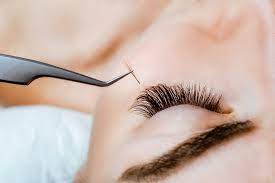
Dry mouth, or xerostomia, is a condition where the salivary glands in the mouth fail to produce enough saliva. It can be caused by a variety of factors, including medication, dehydration, and radiation therapy. However, many people are surprised to learn that allergies can also cause dry mouth. In this article, we will explore the link between allergies and dry mouth, including their causes, symptoms, and treatment options.
Causes of Allergies and Dry Mouth
Allergies occur when the immune system overreacts to a substance that is normally harmless. Common allergens include pollen, dust mites, pet dander, and certain foods. When the body is exposed to an allergen, it releases histamine, which causes inflammation and other allergy symptoms.
Dry mouth can also be caused by a variety of factors, including medication, dehydration, and radiation therapy. However, allergies can also cause dry mouth because histamine can interfere with the functioning of the salivary glands.
Symptoms of Allergies and Dry Mouth
The symptoms of allergies and dry mouth can vary depending on the individual and the severity of the condition. Common symptoms of allergies include:
- Runny nose
- Itchy or watery eyes
- Sneezing
- Nasal congestion
- Rash or hives
- Shortness of breath
Symptoms of dry mouth may include:
- Sticky or dry feeling in the mouth
- Difficulty swallowing or speaking
- Dry or cracked lips
- Bad breath
- Mouth sores or infections
- Decreased sense of taste
Treatment Options for Allergies and Dry Mouth
The treatment options for allergies and dry mouth can also vary depending on the individual and the severity of the condition. Treatment options for allergies may include:
- Avoiding allergens
- Taking antihistamines or other allergy medications
- Immunotherapy (allergy shots)
Treatment options for dry mouth may include:
- Drinking plenty of water
- Using saliva substitutes or artificial saliva
- Chewing sugar-free gum or lozenges
- Avoiding alcohol and caffeine
- Using a humidifier
- Medications to stimulate saliva production
It is important to consult with a healthcare provider to determine the best course of treatment for allergies and dry mouth. In some cases, underlying medical conditions may be causing these symptoms, and additional testing or treatment may be necessary.
Conclusion
In conclusion, allergies and dry mouth are two conditions that can be linked. Histamine released during an allergic reaction can interfere with the functioning of the salivary glands, leading to dry mouth. Symptoms of allergies and dry mouth can vary, and treatment options may also vary depending on the individual and the severity of the condition. If you are experiencing symptoms of allergies or dry mouth, it is important to consult with a healthcare provider to determine the underlying cause and the best course of treatment.










